Business trends for 2025 that M’sian entrepreneurs are keeping their eyes on
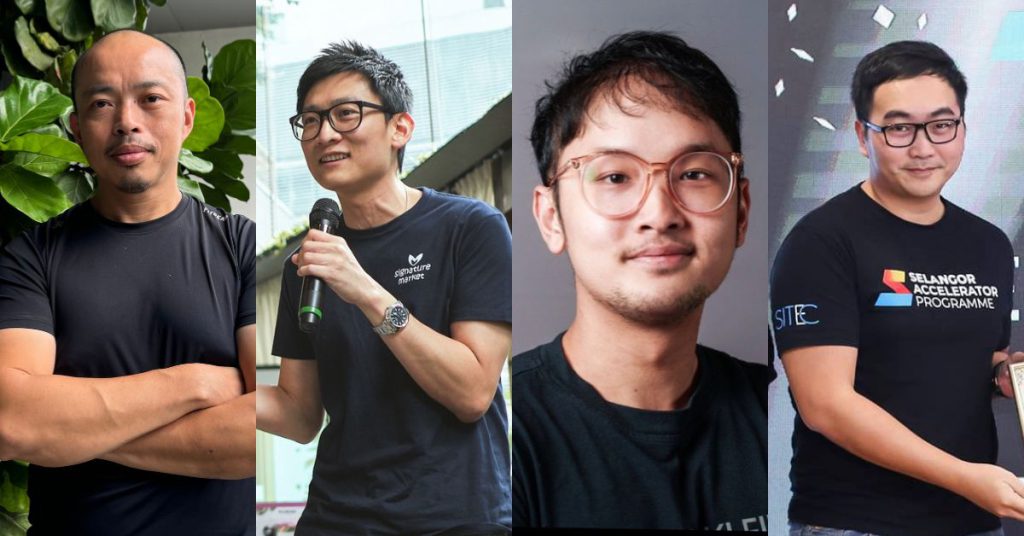
From attending several business conferences this year, such as Tech in Asia, KL20, and Alliance Bank BizSmart, one thing has become clear.
Conversations about AI adoption, automation, and sustainability dominate panel discussions and coffee breaks alike. It’s not just about keeping up anymore—it’s about leveraging these tools to thrive.
While 2024 hasn’t been a year of breakthroughs, it’s been a year of laying the groundwork. Businesses are exploring the potential of AI, and we’re seeing pockets of innovation in sectors like chip manufacturing and agrotech.
But where does all this lead us in 2025? Drawing insights from entrepreneurs and trends observed throughout 2024, here are some predictions for the coming year.
The AI revolution: From hype to practical applications
While 2024 introduced many Malaysians to the potential of AI through tools like ChatGPT and Amazon Web Services solutions, Edwin Wang, the CEO of Signature Market, predicts that 2025 will see Malaysian businesses focus on integrating AI for enhanced productivity and revenue generation.
Dylan Tan, founder and CEO of Replyr.ai, observed, “AI will level the playing field by enabling nimble firms to outperform larger competitors with greater efficiency and adaptability. Smaller companies are already challenging incumbents by leveraging AI.”

From agentic AI systems acting as virtual colleagues to more sophisticated automation tools for SMEs, the use of AI is expected to expand significantly in 2025.
AI agents, according to Dylan, are already lowering entry barriers for startups in competitive industries. But there’s a caveat: startups must continuously innovate or risk irrelevance.
“If your offering doesn’t improve with every new AI model launch, you’re on shaky ground,” Dylan warned.
In agrotech
While industries like ecommerce and finance are often at the forefront of discussions about artificial intelligence, agrotech is another sector that can benefit from it.
One example of this is HEXA IoT, a local company specialising in Industry 4.0 solutions for the environmental, agriculture, and manufacturing sectors.
HEXA IoT was part of the MRANTI Global Accelerator Programme (GAP) and recently showcased an innovative device called Project A3. This device stands out because it integrates AI with a 5G remote-controlled all-terrain vehicle, which tracks crop performance to improve harvests.
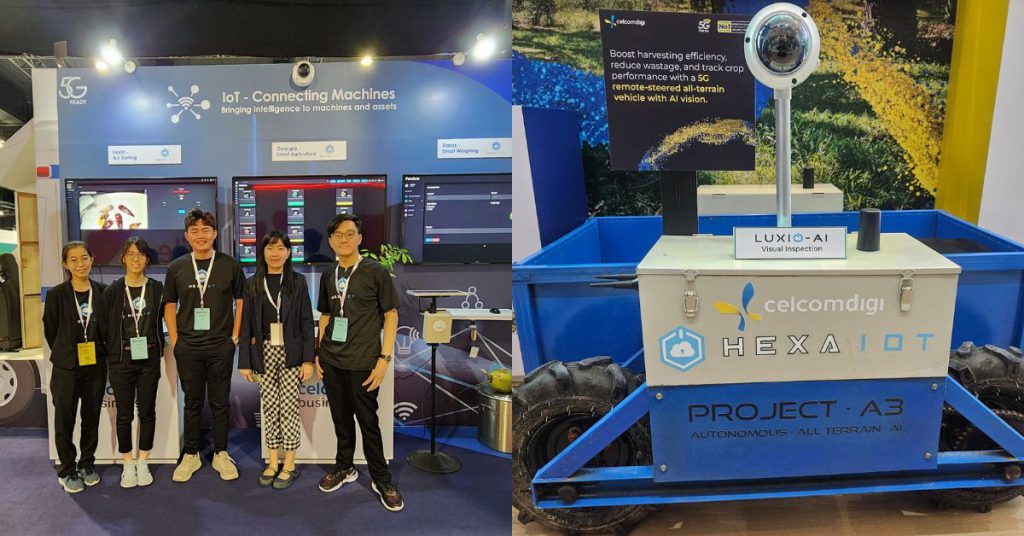
But AI in agrotech aside, Entrepreneurs and Startup in Malaysia (EnSIM) founder Daniel Cerventus Lim believes that the agrotech industry itself still has untapped potential. He noted, “Globally, AI will dominate, but in Malaysia, agrotech startups could make a significant impact.”
Therefore, AI-powered or not, there’s a good chance that Malaysia’s agrotech startups will still be making waves in the economic landscape.
In marketing
Marketing, once an art of human connection through storytelling and personalised experiences, is now increasingly driven by AI, handling tasks like customer analysis, SEO strategies, and generating ad copy.
Justin Tai, co-founder of Hypercharge, aptly highlighted this trend, stating, “I believe the use of AI in digital marketing, especially SEO, is something that is up and rising and becoming a necessity for most, if not all, marketers in the world.”
AI could “reduce opex brought from daily repetitive tasks including but not limited to: handling customer inquiries, copywriting, and trend and data analysis,” he pointed out.
He also encouraged local businesses to adopt Search Generative Experience (SGE) and Geo-Enhanced Optimisation (GEO). “With the growing use of tools like SearchGPT, those that don’t adapt may lose market share to competitors,” he said.
AI challenges: Talent gaps and job disruptions
However, the rise of AI also brings its own set of challenges. One of the most pressing is the difficulty in finding talent to lead AI initiatives.
“Even at Replyr, we couldn’t find experienced hires; we had to train people from scratch,” Dylan admitted. This talent gap might persist in 2025, but it also presents opportunities for upskilling.
Daniel believes AI agents and automation could be game-changers for SMEs. However, he also noted, “Since AI agents are going to be big, there is also a lot of demand for that, but that might lead to the displacement of jobs.”
“[Then there’s also Trump’s presidency], which is going to force the business owners of countries such as China to look elsewhere, such as Malaysia, and their cost might be hard to fight in Malaysia,” he added.
Our ageing population is an emerging niche for entrepreneurs to tap into
As populations age both globally and locally, another emerging area is longevity and ageing-focused businesses. With Malaysia set to become an ageing population by 2030, startups catering to this demographic—from health tech to senior-friendly services—may see growth, said Daniel.
For example, retirement villages are starting to catch on, where they offer a community-focused vibe that encourages independent living while still providing different levels of support when needed.
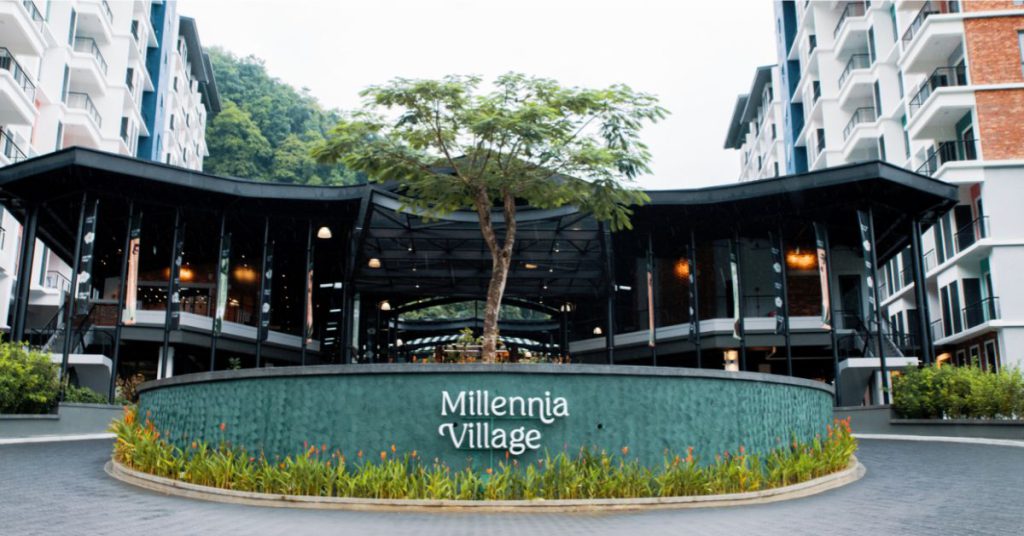
Even venture capitalists are getting in on the action by investing in senior care homes, which shows just how much potential this sector has.
The push for sustainability will grow, led by consumer demand
Sustainability, especially in the context of ESG (Environmental, Social, and Governance) standards, is also gaining momentum.
Daniel believes sustainability is poised to influence bottom lines, but the real push has to come from consumers.
“As long as there’s demand, businesses will follow the trend,” he noted. He pointed out AEON as an example, equipping suppliers with the necessary tools and knowledge to adopt sustainable practices, signalling a growing emphasis on ESG.
Dylan added, “Transparency, sustainability, and ethical behaviour are no longer optional; they’re essential for survival.” Malaysian consumers, particularly Gen Z, are increasingly vocal about their expectations, pushing companies to adapt.
However, Edwin feels Malaysia tends to follow global trends rather than lead them. With political shifts like Trump’s policies deprioritising ESG, he predicts Malaysian companies might not focus heavily on sustainability by 2025.
He’s also sceptical about significant EV car adoption or major startup investments in ESG-related areas happening anytime soon.
Data centres, chip manufacturing & semiconductor sectors will continue to grow
Malaysia’s semiconductor industry experienced steady growth in 2024, and this trend is set to continue.
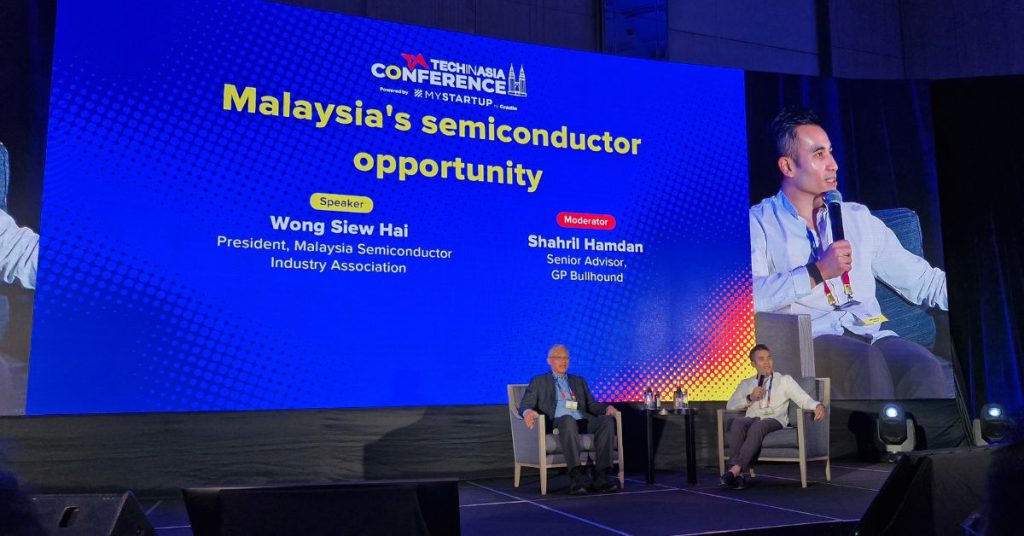
Edwin highlighted that “data centres and chip manufacturing will rise due to the influx of Chinese companies seeking to mitigate tariff risks from the US.”
Penang, in particular, has emerged as a hub for high-paying jobs in the semiconductor sector. The resulting rise in middle-income salaries could spark lifestyle and consumption trends, benefiting local startups.
“Lifestyle industries in Penang and Johor are set to boom, catering to richer professionals and even spillover from Singapore,” Edwin noted.
Niche communities & fragmented markets spell business opportunities
Gen Y and Z’s increasing purchasing power is driving a shift towards niche, community-focused offerings.
This trend is already evident in sports, with innovations like pickleball courts offering cafe-style resting areas. “Soon there will be such experiences for all the sports,” noted Edwin.
It’s hard to ignore the number of pickleball courts that have already mushroomed in Malaysia this year.

Entrepreneurs are seizing opportunities to cater to specific interests, creating unique experiences that resonate with younger consumers. Expect to see more startups capitalising on this trend in 2025.
-//-
Whether these trends accelerate or stagnate will depend on various factors, including global policies, local market dynamics, and consumer priorities.
While we may not see revolutionary breakthroughs, incremental progress in AI adoption, agrotech, and niche markets could set the stage for a more dynamic startup ecosystem.
Malaysia has always been a fast follower rather than a first mover, but with the right investments in talent and technology, it might just find its own unique stride. If 2024 was about laying the groundwork, 2025 will be about building on it.
- Read other articles on Malaysian startups here.
Also Read: Meet 5 M’sian founders who made it & are now helping to grow the next gen of startups
Featured Image Credit: Daniel Cerventus Lim, founder of NextUpAsia / Edwin Wang, CEO of Signature Market / Dylan Tan, founder and CEO of Replyr
2024 in focus: Here’s our recap of events & business trends that made waves in Singapore
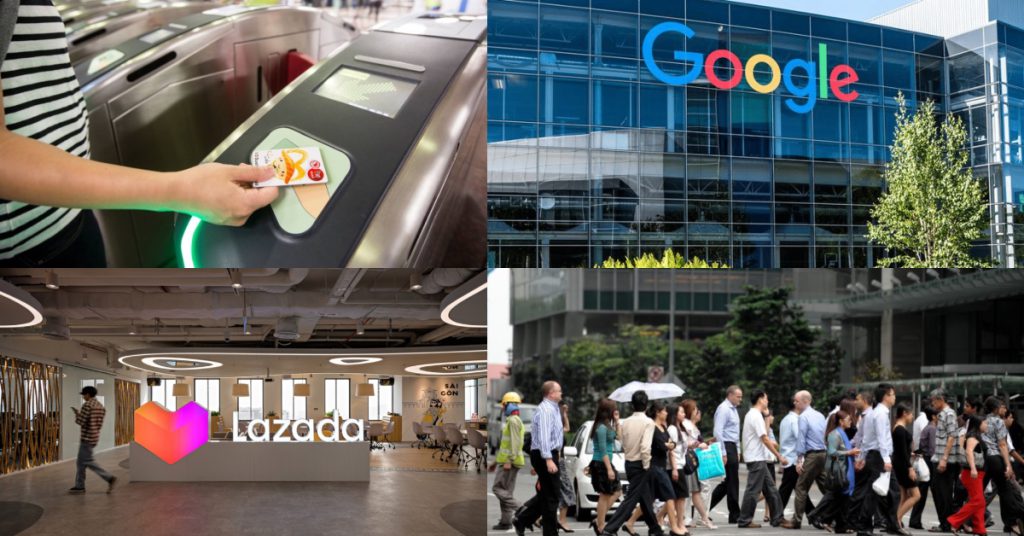
Yet another year has come and gone, and at Vulcan Post, we’re hitting pause to look back on the key events that have defined 2024.
We’ve followed the journeys of entrepreneurs, unpacked key events in Singapore, and explored trends that caught our readers’ attention. And as we bid goodbye to 2024, it only feels fitting to revisit the stories that made this year stand out.
So without further ado, here’s a recap of the moments, trends, and events that shaped the year:
2024 kicked off with a whirlwind of events
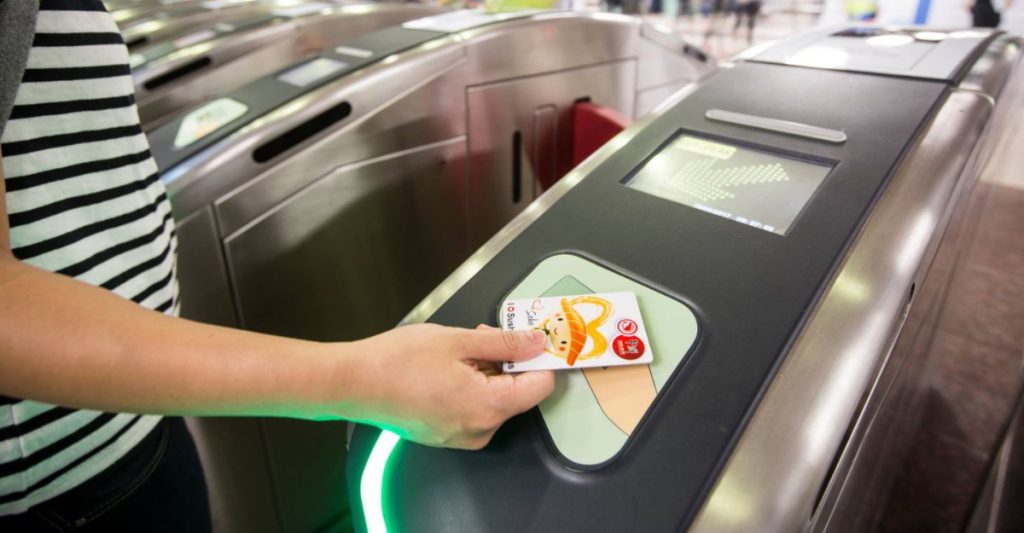
In January, the Land Transport Authority (LTA) announced that EZ Link and NETS FlashPay cards would be phased out in favour of the SimplyGo platform by June 1st, sparking intense public backlash.
Commuters were unhappy as they were not able to check their stored-value card balance and fare deductions at MRT gates and bus card readers, and there were also complaints about the delays they faced when upgrading their cards to SimplyGo-compatible ones.
As public frustration erupted on social media, with many questioning the necessity of the proposed changes, LTA quickly reversed their decision just two weeks after the announcement, acknowledging the need to iron out concerns raised by commuters.

In the tech and business world, layoffs continued to be a constant headline—global firms were cutting staff almost every other day, and Singapore wasn’t spared from the impact.
At the start of the year, Lazada let go of at least 100 employees in Singapore across multiple departments, with some teams even having their manpower reduced from 20 to 30 people to four or five remaining employees. Amazon and Google also followed suit, making significant reductions in its workforce.
With so many layoffs happening in the first month alone, we just had to compile a list of companies that had downsized and affected staff in Singapore to give you an overview of the employment landscape and how these layoffs are affecting the local workforce.
And speaking of the local workforce, Singaporean companies were also feeling the pinch, laying off employees as part of cost-cutting measures. PropertyGuru Group, after a strategic review, shut down its unprofitable units and laid off 79 employees in February.
Smaller homegrown businesses, like Stickies Bar, also faced difficulties—the company found itself embroiled in controversies after it abruptly shut down its outlets and delayed paying employees on time.
A shift in Singapore’s employment trends & a worldwide IT disruption
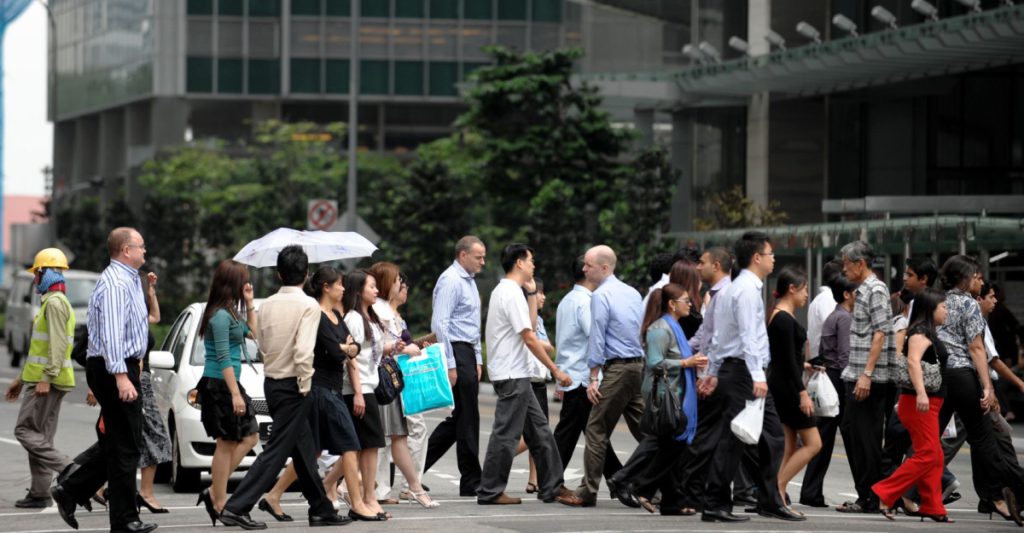
Amidst the challenging start to the year, particularly in the employment landscape, we’ve noticed a growing interest in news about job trends—an area that resonated deeply with you, our readers, as the year progressed.
The allure of tech in Singapore has dimmed considerably. Beyond widespread layoffs, the industry has faced a sharp decline in funding in Southeast Asia. In fact, tech funding in the region has plunged by 59 percent year on year to US$2.84 billion this year.
This downturn has also brought about a notable shift in compensation trends within Singapore’s tech industry. In contrast to the preceding two years, there is now an overall decrease in salaries for various tech positions, including software engineers.
Career progression is also top of mind for Singaporeans navigating the job landscape. Among other articles that resonated with our readers was a detailed list of 15 large companies offering the best career growth opportunities in Singapore, and another highlighting the most in-demand careers in the city-state.
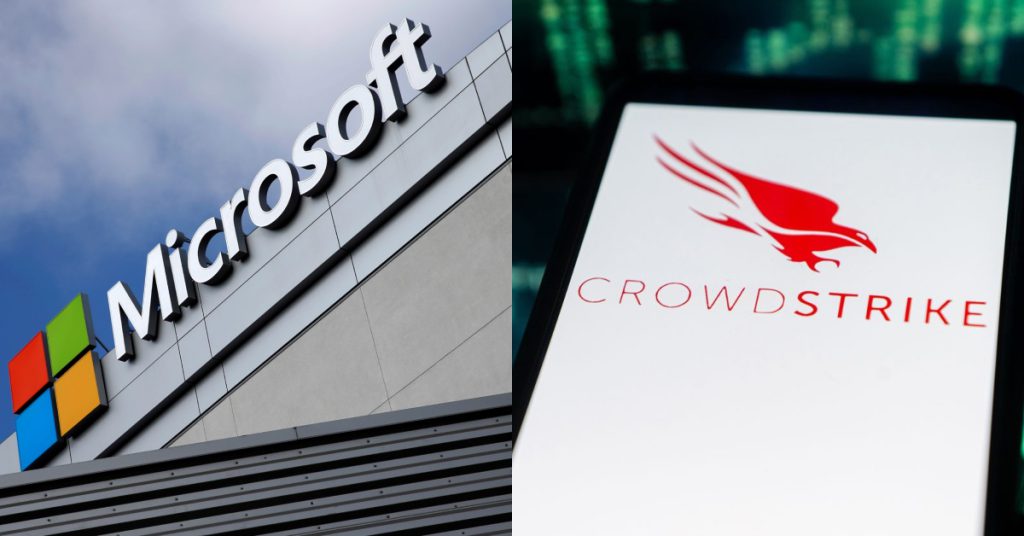
In July, another major incident dominated the headlines: the CrowdStrike IT outage, now considered one of the largest IT outages in history. Roughly 8.5 million systems crashed and failed to restart properly, leaving industries across the globe grappling with widespread disruptions.
The outage was triggered by a botched update by cybersecurity software firm CrowdStrike that was applied to Microsoft Windows operating systems.
In Singapore, snaking lines were seen at Changi Airport as self-check-in machines for over 10 airlines were down. Even local news outlets like Lianhe Zaobao and The Straits Times were not spared, with both reporting operational impacts from the outage.
The year is ending with a spate of layoffs and business closures
As we approach the end of the year, it’s layoff season once again. Since August, reports of companies implementing job cuts have continued to emerge.
This includes Qoo10—the ecommerce firm laid off more than 80% of its Singapore-based workforce and reportedly defaulted on payments to local merchants and consumers. Other companies also laid off employees, including Carousell, Dyson, and Samsung.

There were also a spate of closures and exits in the F&B and retail sectors. Little Caesars, the third largest pizza chain in the world, closed its very last outlet in the city-state in September after struggling to sustain its operations.
Times Bookstore and Epigram Books bid goodbye as well, as they grappled with low sales and foot traffic.
Meanwhile, the coworking industry in Singapore has also seen a decline—with companies looking to lower costs, many are choosing to consolidate office spaces and opt out of coworking arrangements entirely. This has led players like WeWork to give up space in two prime locations in Singapore last month.
The challenges facing the business landscape are undeniable—it’s been a tough year across industries.
…But all is not lost

While the trend of layoffs has persisted since the COVID-19 pandemic and the ongoing tech winter, adversity has also spurred some businesses to adapt and innovate.
Instead of succumbing to the challenges, these businesses have stepped up, proving that tough times can present opportunities for reinvention and growth.
This year, Sea Limited celebrated a milestone: its first profitable year since going public in 2017. The tech conglomerate has experienced its fair share of highs and lows, and in this article, we delved into insights from Forrest Li, as he shared how the company scaled up and overcame challenges since its inception.
Though the business landscape has posed challenges for local activewear brand Vivre Activewear—leading to the closure of all its retail outlets in recent years due to high rental and manpower costs—the company has used these setbacks as an opportunity to pivot. By adapting its business model, the brand is strategically positioning itself for long-term sustainability.
On the other hand, some Singaporeans even took being laid off as a chance to build their own business, including Aire founder Nivedita Venkateish. She created an adult diaper brand after being retrenched from Meta, driven by her desire to provide better options for her grandmother who suffered from adult incontinence.
With that, let’s end 2024 and move into the new year on a hopeful note—even in the toughest times, innovation and resilience can spark new opportunities and pave the way for growth.
- Read articles we’ve written about Singaporean startups here.
Also Read: Making a living in the death trade: What does it take to be a funeral director in Singapore?
Featured Image Credit: Unsplashed/ Getty/ Public Transport Council via Facebook
Critical convos with a focus on impact: How MRANTI is bridging local & global markets
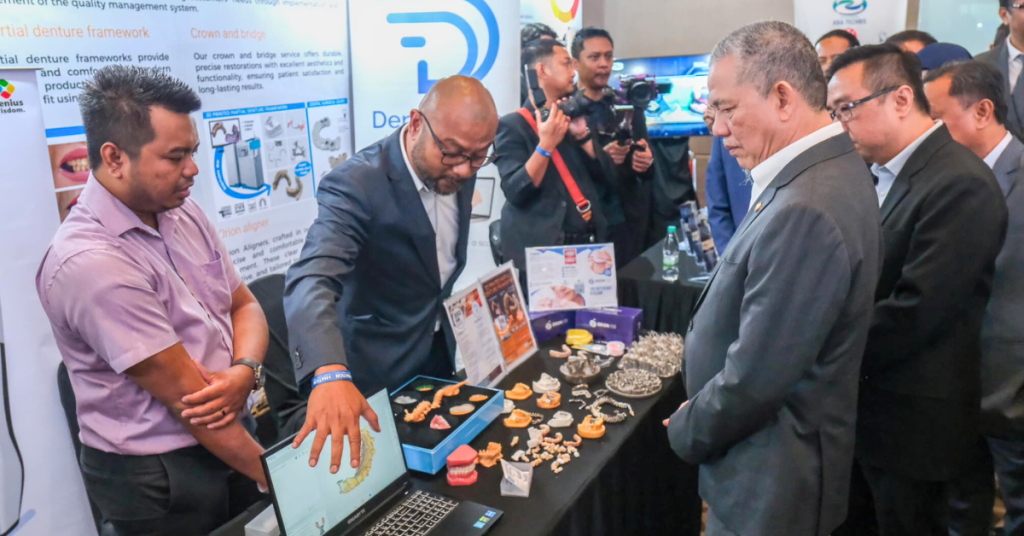
[This is a sponsored article with MRANTI.]
“We must take action. Whether in policy-making, research, or industry practice, it is our responsibility to turn today’s insights into tomorrow’s solutions.”
This call to action from MRANTI CEO Datuk Wira Dr. Hj. Rais Hussin captures the organisation’s drive to turn innovation into tangible impact. But while insights are important, real change requires more than just ideas—it requires collaboration and action.
At MRANTI, that means bringing together local and global leaders to tackle some of Malaysia’s biggest challenges, from food security to healthcare transformation.
At the recent three-day I-Nation Global Summit 2024, we got a firsthand look at how MRANTI is putting this vision into action. Here are three ways they’re bridging local and global markets.
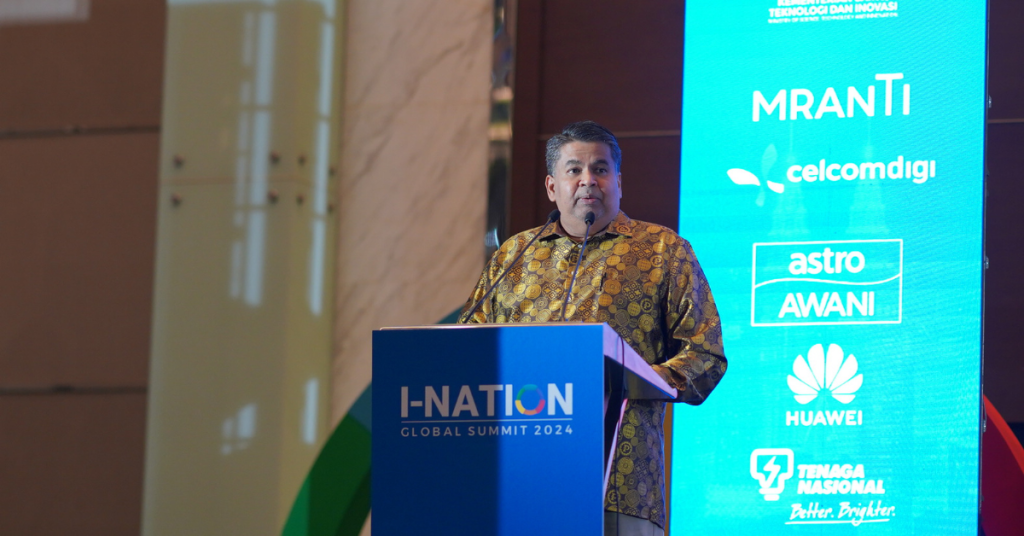
1. Providing a platform for open international discussions via the National Technology Innovation Sandbox (NTIS) Global Sandbox Forum
As the name may suggest, the NTIS Global Sandbox Forum spotlights how sandbox models drive innovation across industries like Artificial Intelligence (AI) and Autonomous Vehicles (AV) by creating safe spaces for experimentation.
Held on the second day of the summit, the forum invited speakers from around the world to share their sandbox success stories during a panel session titled “From Policy to Practise: How Regulatory and Innovation Sandboxes Accelerate Technology Commercialisation”.
We got to hear insights from industry experts who shared their best practices in building successful sandboxes, namely:
- Raphael von Thiessen from Momentum Collaboration, Switzerland
- Dr. Choi Haeok from Science and Technology Institute (STEPI), South Korea
- Anton Rizki Sulaiman from Center For Indonesian Policy Studies, Indonesia
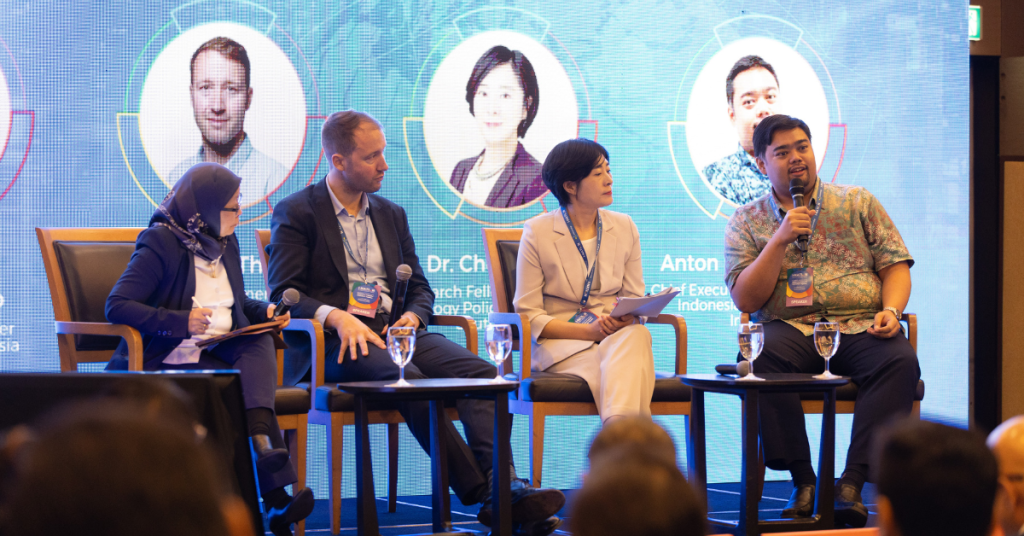
Moderated by Hazami Habib, Chief Executive Officer of Akademi Sains Malaysia, the panellists didn’t shy away from candid sharings about what worked or didn’t work for their sandboxes. This allowed for open discussions on how Malaysia can build sustainable, scalable innovations through our own sandboxes such as the NTIS Sandbox.
Some key points that were shared included the importance of having an interconnected innovation ecosystem, the need for governments to be agile when it comes to policies, and the value of cross-collaboration amongst stakeholders and ecosystem players.
2. Hosting satellite events that allow for real-time problem-solving and actionable outcomes
Due to the captivating main stage lineup at the I-Nation Global Summit 2024, we could only attend one satellite event, the NTIS Global Sandbox Forum. Yet, even this brief experience showcased how MRANTI’s events facilitate real-time problem solving.
To illustrate, Raphael von Thiessen noted the regulation concerns encountered by the Swiss Innovation Sandbox for Artificial Intelligence (AI), which is a test environment for the implementation of AI projects. For example, autonomous tractors for agriculture would occasionally need to cross public roads, where they’re classified as self-driving vehicles but don’t meet the requirements to be on public roads.
This raised the issue of how policies must evolve alongside innovation. In Raphael’s case, they took an active approach to meeting with local legislatures and requested revisions in traffic laws to accommodate such use cases.
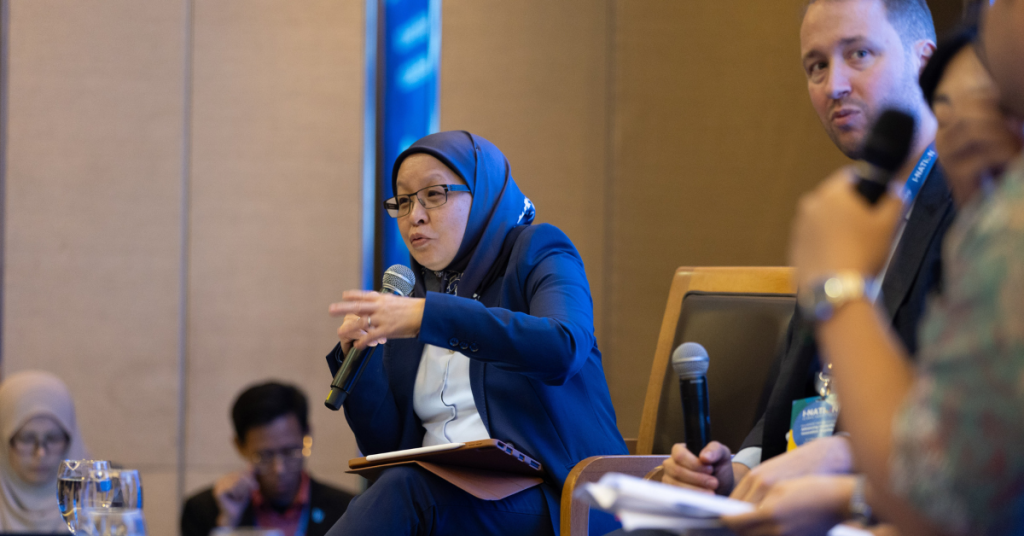
Moderator Hazami Habib shared that as a think tank, Akademi Sains Malaysia has come up with various solutions locally too. “We do everything that is unthinkable but the government is not ready, so what we need is an agile government.”
A case study she cited was Japan and its gradual adaptation of autonomous vehicles on highways. With such encouragement from the authorities, the nation is moving towards a future where driverless cars might rule the streets.
While we didn’t manage to attend the other satellite events, they each play a role in bridging the gap between innovation and implementation:
| Ecosystem Builders’ Summit (EBS) | EBS 2024 gathered 46 organisations from 20 countries, including government agencies, accelerators, and venture capitalists, to share best practices and foster collaboration.
It remains as an action-oriented summit focused on driving the growth of the tech ecosystem through shared resources and opportunities. |
| Supercharger Finale 2024 | This event showcased MRANTI’s initiative to fast-track research and development for commercial solutions. |
| NTIS Tea Talk | The NTIS Tea Talk was all about introducing the NTIS programme to potential participants.
This event highlighted the programme’s goals, benefits, and collaboration opportunities while exploring how technology can drive sustainable growth and economic resilience through chats with experts and policymakers. |
| NTIS Pitch Perfect | NTIS Pitch Perfect is a platform that lets startups pitch their ideas to experts and investors, allowing the startups to get feedback and improve their chances of market success. |
| MATCH Platform and Speed Dating | MATCH Platform and Speed Dating offered a fast-paced networking environment for startups, investors, and partners to explore collaborations and build connections. |
| HealthTech Innovation Connect | Co-organised with MaHTAS, this programme is dedicated to local healthcare solutions.
As health tech continues to surge, this event featured advancements and fostered connections in healthcare innovation, focusing on solutions specific to Malaysia’s needs. |
3. Advancing innovations that address universal challenges faced by the international community

Rebranded in 2021, MRANTI was established to drive idea generation and impact through the invention, development, and commercialisation of technology and innovation.
Hence, it has many initiatives in place to facilitate Malaysian businesses and innovators in this endeavour. This includes bootcamps, IP services, research prototyping, as well as a slew of in-house programmes like its Supercharger Series.
Some of the graduates under MRANTI’s initiatives have been successful in creating innovative technology that addresses universal challenges. From healthcare access to sustainable agriculture, local startups are contributing valuable solutions to the international community.
For example, Qmed Asia is a healthcare tech startup that graduated from the Supercharger Series and was named one of the top tech startups at the HK Tech 300 SEA Start-up Competition. Initially a digital solution to long queues, Qmed Asia has moved towards patient care with innovations like the Qmed AI Vision, an AI-powered tool designed for interpreting radiological images.
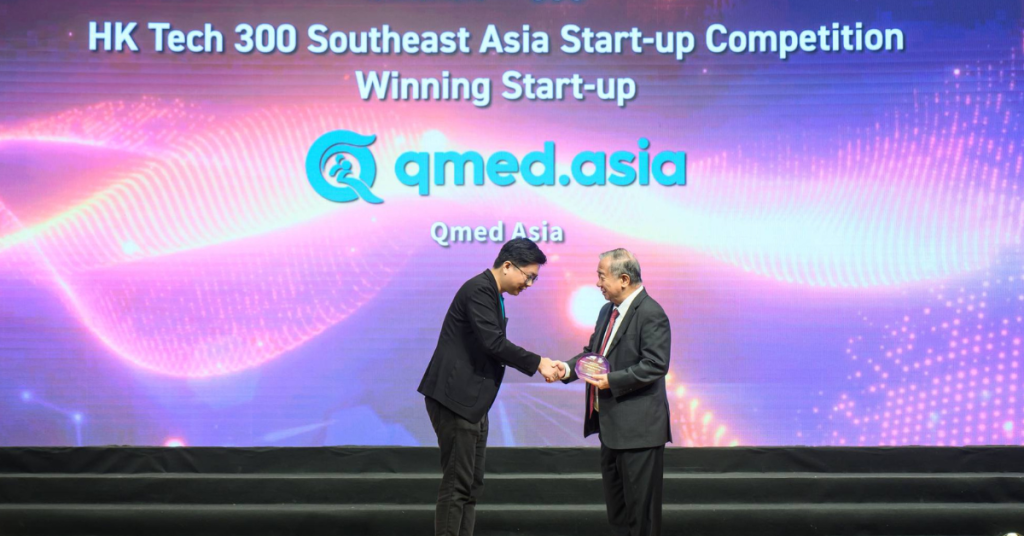
HEXA IoT, who was part of the MRANTI Global Accelerator Programme (GAP), was also present at the summit and showcased their agritech device called Project A3. It helps boost harvests by tracking crop performance with a 5G remote-steered all-terrain vehicle with AI vision.
Bigger and bolder ambitions in the works
MRANTI Park takes these efforts a step further. The space allows local talent and international investors to come together and turn ideas into real-world solutions with global impact.
Going forward, its CEO announced at the summit that MRANTI will establish artificial intelligence (AI) labs with partners in the UK with a Hub and Spoke lab configuration between the UK, India, and MRANTI.
In a commitment to ensure that critical conversations like those at the summit lead to meaningful progress, Datuk Wira Dr. Rais stated, “We will compile and continue to monitor the discussion points to ensure actions are taken, especially in the areas of agriculture and healthcare—two critical sectors for our future generations.”
The team will also deliver regular updates on the progress of key initiatives discussed during this summit and future ones. This is to ensure that impactful actionables come out of their events.
All of these efforts play into MRANTI’s bigger goal of supporting the growth of more innovations that meet the needs of international markets, and come 2025, we can expect greater things from the organisation.
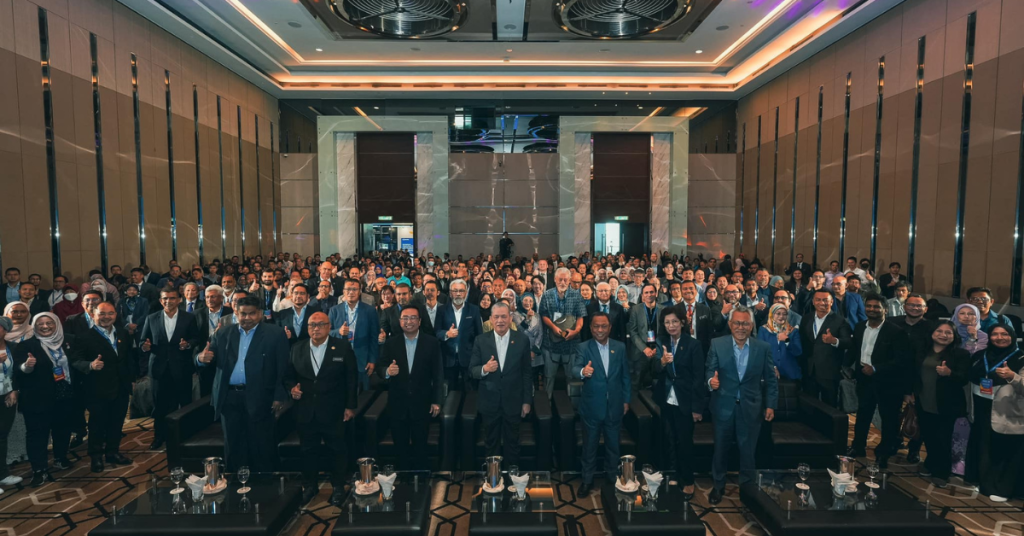
Also Read: 5 reasons Tokyo makes an ideal launchpad for M’sian & S’porean startups to scale globally
Featured Image Credit: MRANTI